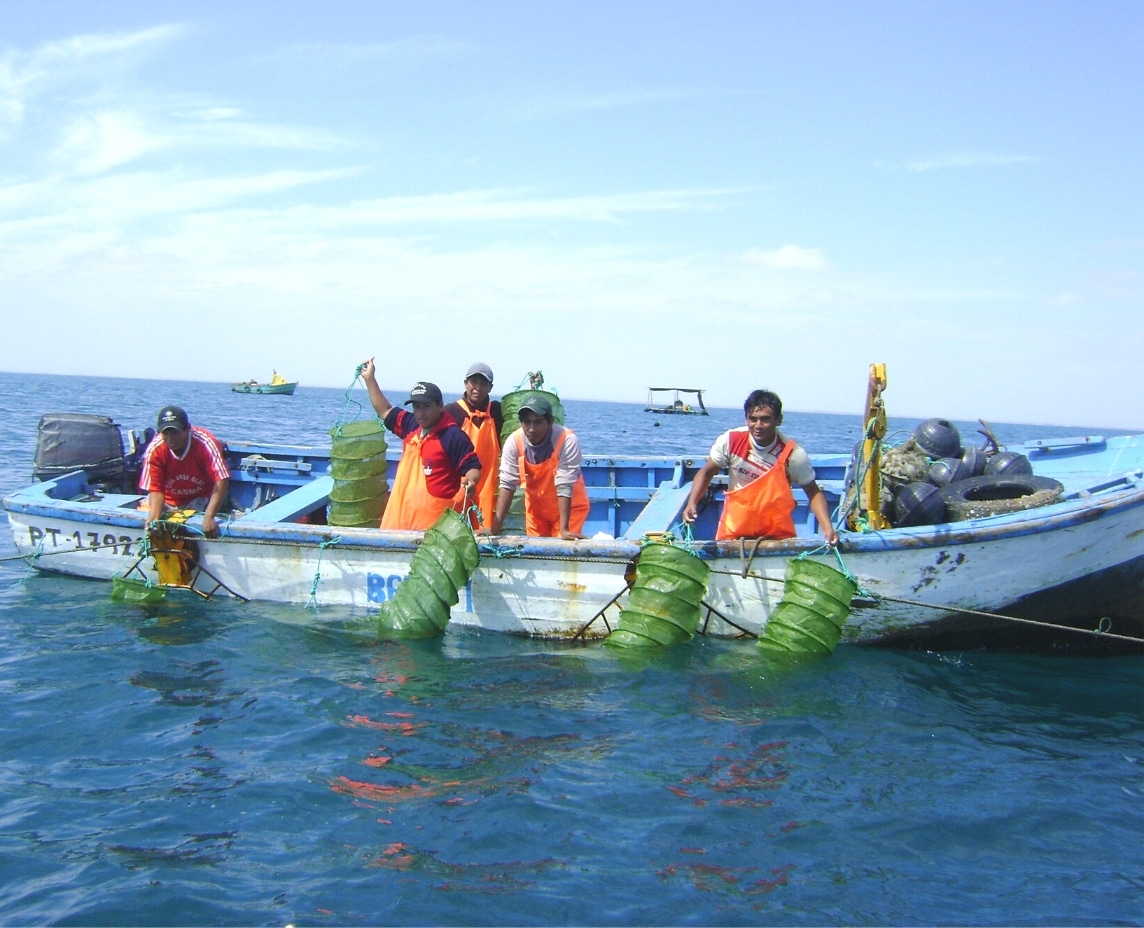The project aims to contribute to the strengthening of the scallop value chain, to achieve economic, social and environmental changes, for the benefit of the community of Bahía de Sechura, in the Department of Piura, Peru, and more specifically of 300 mariculture farmers. (150 women and 150 men) organized into 15 SMEs, 18 Andean peasants and 36 cocoa producers.
To this end, the following three components will be addressed:
- Innovation as a means to improve productivity and guarantee the economic and environmental sustainability of the livelihoods and economic income of mariculture farmers;
- The real inclusion of women in terms of equality, promoting, giving value and making visible their contribution to the transformation and economic progress of the community;
- The protection of ecosystems to fight climate change and contribute to a just ecological transition.
The innovative nature of the project is linked to the circular economy approach, which interrelates mariculture and agriculture. The articulation of both will train the population to learn how to treat the waste generated in the production of the scallop, which will help reduce high levels of contamination and generate nutrients for cocoa production. This will diversify production, generate new sources of income for vulnerable families and contribute to environmental sustainability and changes in attitudes associated with the culture of recycling and respect for the environment.
The project will also work to improve management, leadership, production and association skills, in order to empower the mariculture population socially and economically, with special attention to women, improving the capacity of small local industries.
All this will have an impact on socioeconomic sustainability and environmental sustainability with specific actions aimed at protecting native ecosystems with comprehensive actions and developing tools at the community level.





